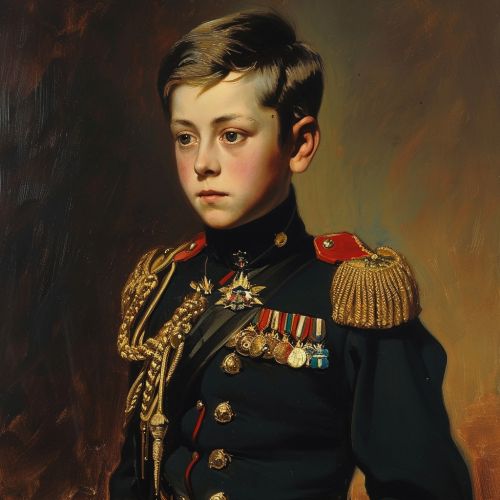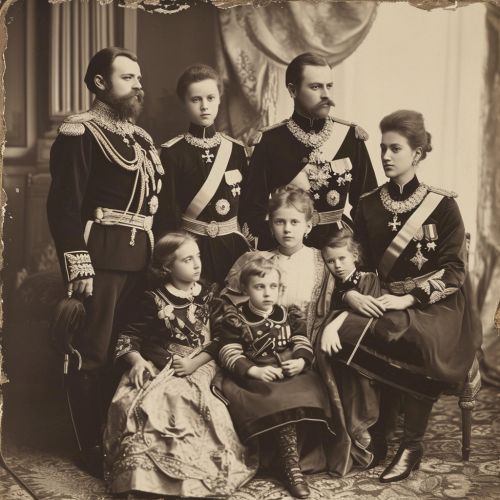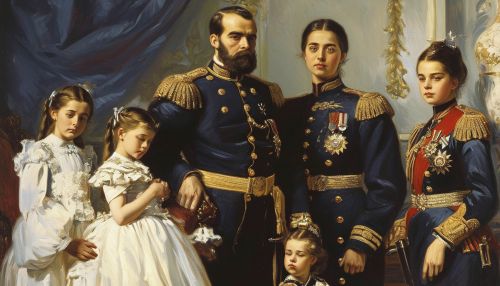Tsar Alexander III
Early Life
Tsar Alexander III, also known as Alexander Alexandrovich Romanov, was born on March 10, 1845, in Saint Petersburg, Russian Empire. He was the second son of Tsar Alexander II and his wife Maria Alexandrovna, born Princess Marie of Hesse and by Rhine. As a child, Alexander was tutored by a series of private teachers, who provided him with a solid grounding in languages, history, and military tactics.


Ascension to the Throne
Following the assassination of his father, Tsar Alexander II, on March 13, 1881, Alexander ascended to the throne. His father's liberal reforms were reversed as Alexander III sought to strengthen autocratic rule within the Russian Empire. His reign was marked by repression of political opponents, strict censorship of the press, and efforts to suppress revolutionary movements.
Domestic Policies
Alexander III's domestic policies were largely focused on maintaining the autocratic rule of the Tsar and suppressing any potential threats to his power. His policies were characterized by a strong belief in the divine right of kings, and an unwavering commitment to the principles of autocracy. These policies were implemented through a series of measures known as the "May Laws" or "Temporary Regulations", which restricted civil liberties and increased the power of the state.
Foreign Policies
In terms of foreign policy, Alexander III pursued a policy of "peaceful non-intervention", avoiding involvement in major European conflicts. His reign saw a significant shift in Russian foreign policy, from the expansionist policies of his predecessors to a more conservative and isolationist approach. This policy was largely successful in maintaining peace, but it also left Russia isolated from the major developments in European politics and diplomacy.
Personal Life
Alexander III was married to Princess Dagmar of Denmark, who took the name Maria Feodorovna upon her conversion to Orthodoxy. They had six children: Nicholas (who would become Tsar Nicholas II), Alexander, George, Xenia, Michael, and Olga. Despite his imposing physical presence and stern policies, Alexander III was known to be a devoted family man, deeply attached to his wife and children.


Death and Legacy
Alexander III died on November 1, 1894, at the age of 49, from nephritis. His death marked the end of an era of relative peace and stability in Russia. His son, Nicholas II, succeeded him, but was ill-prepared for the challenges of ruling Russia in a time of rapid social and political change. The policies of Alexander III, particularly his repression of political dissent and his commitment to autocracy, would have far-reaching consequences for the future of Russia.
